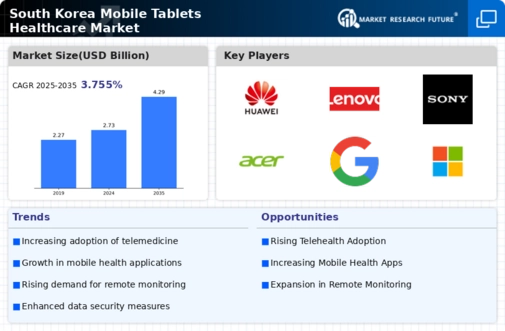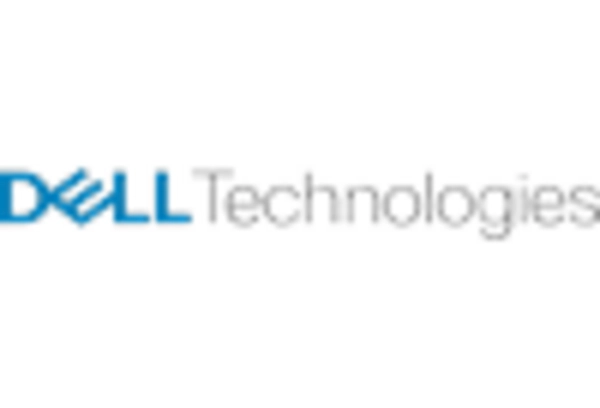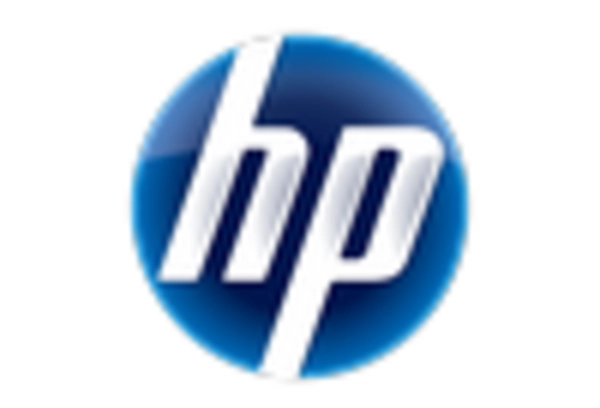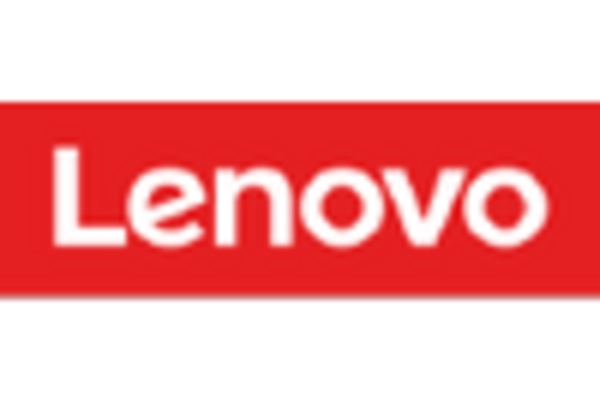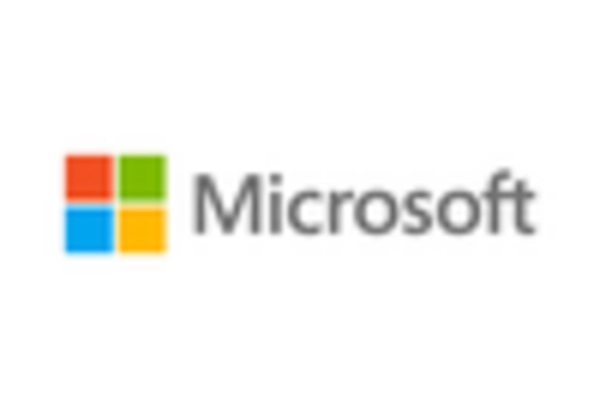Advancements in Mobile Technology
Technological advancements play a crucial role in shaping the mobile tablets-healthcare market in South Korea. The introduction of high-performance tablets equipped with advanced features, such as enhanced processing power and improved battery life, allows healthcare professionals to utilize these devices more effectively. For instance, tablets with high-resolution displays enable better visualization of medical images and data, which is essential for accurate diagnosis and treatment. Additionally, the integration of artificial intelligence and machine learning capabilities into mobile applications enhances the functionality of tablets in healthcare settings. As these technologies continue to evolve, they are likely to drive further adoption of mobile tablets in healthcare, making them indispensable tools for medical practitioners.
Integration of Health Data Analytics
The integration of health data analytics into the mobile tablets-healthcare market is emerging as a significant driver of growth. Healthcare providers in South Korea are increasingly leveraging data analytics to improve patient care and operational efficiency. Mobile tablets equipped with analytics capabilities allow for the collection and analysis of vast amounts of health data, enabling providers to make informed decisions. For instance, predictive analytics can identify potential health risks, allowing for proactive interventions. The ability to analyze patient data in real-time enhances the responsiveness of healthcare services, which is crucial in a fast-paced environment. As the demand for data-driven decision-making continues to rise, the mobile tablets-healthcare market is likely to benefit from this trend.
Increased Focus on Patient Engagement
The mobile tablets-healthcare market is witnessing a shift towards increased patient engagement, which is becoming a critical driver of growth. Healthcare providers in South Korea are recognizing the importance of involving patients in their own care processes. Mobile tablets serve as effective tools for facilitating communication between patients and providers, allowing for personalized health information and education. Studies indicate that engaged patients are more likely to adhere to treatment plans, leading to improved health outcomes. As healthcare systems strive to enhance patient satisfaction and outcomes, the demand for mobile tablets that support interactive and user-friendly applications is expected to rise. This focus on patient engagement is likely to propel the mobile tablets-healthcare market further.
Rising Demand for Remote Patient Monitoring
The mobile tablets-healthcare market in South Korea experiences a notable surge in demand for remote patient monitoring solutions. This trend is driven by an increasing aging population, which necessitates continuous health monitoring. According to recent statistics, approximately 15% of the South Korean population is aged 65 and older, leading to a heightened need for effective healthcare management. Mobile tablets facilitate real-time data collection and communication between patients and healthcare providers, enhancing the quality of care. Furthermore, the convenience of using mobile tablets for monitoring chronic conditions, such as diabetes and hypertension, is becoming increasingly recognized. This growing reliance on mobile technology for health management is likely to propel the mobile tablets-healthcare market forward, as healthcare providers seek efficient ways to deliver care remotely.
Government Initiatives Supporting Digital Health
In South Korea, government initiatives aimed at promoting digital health solutions significantly impact the mobile tablets-healthcare market. The government has invested heavily in healthcare technology, with a budget allocation of over $1 billion for digital health projects in recent years. These initiatives include the development of infrastructure to support telemedicine and mobile health applications, which are essential for the effective use of mobile tablets in healthcare settings. By fostering an environment conducive to innovation, the government encourages healthcare providers to adopt mobile tablets for various applications, including patient education and data management. This support not only enhances the capabilities of healthcare professionals but also improves patient outcomes, thereby driving growth in the mobile tablets-healthcare market.


